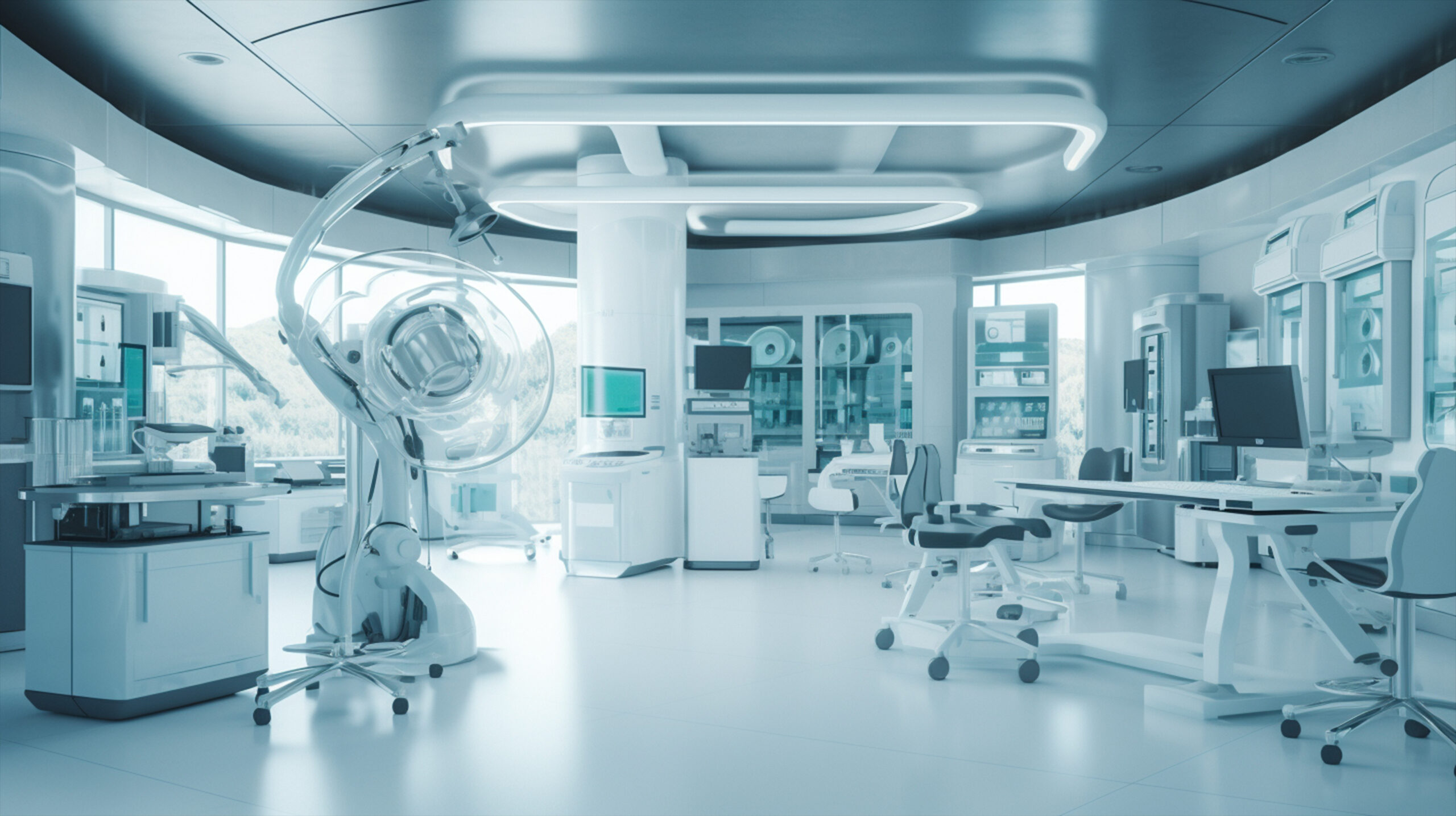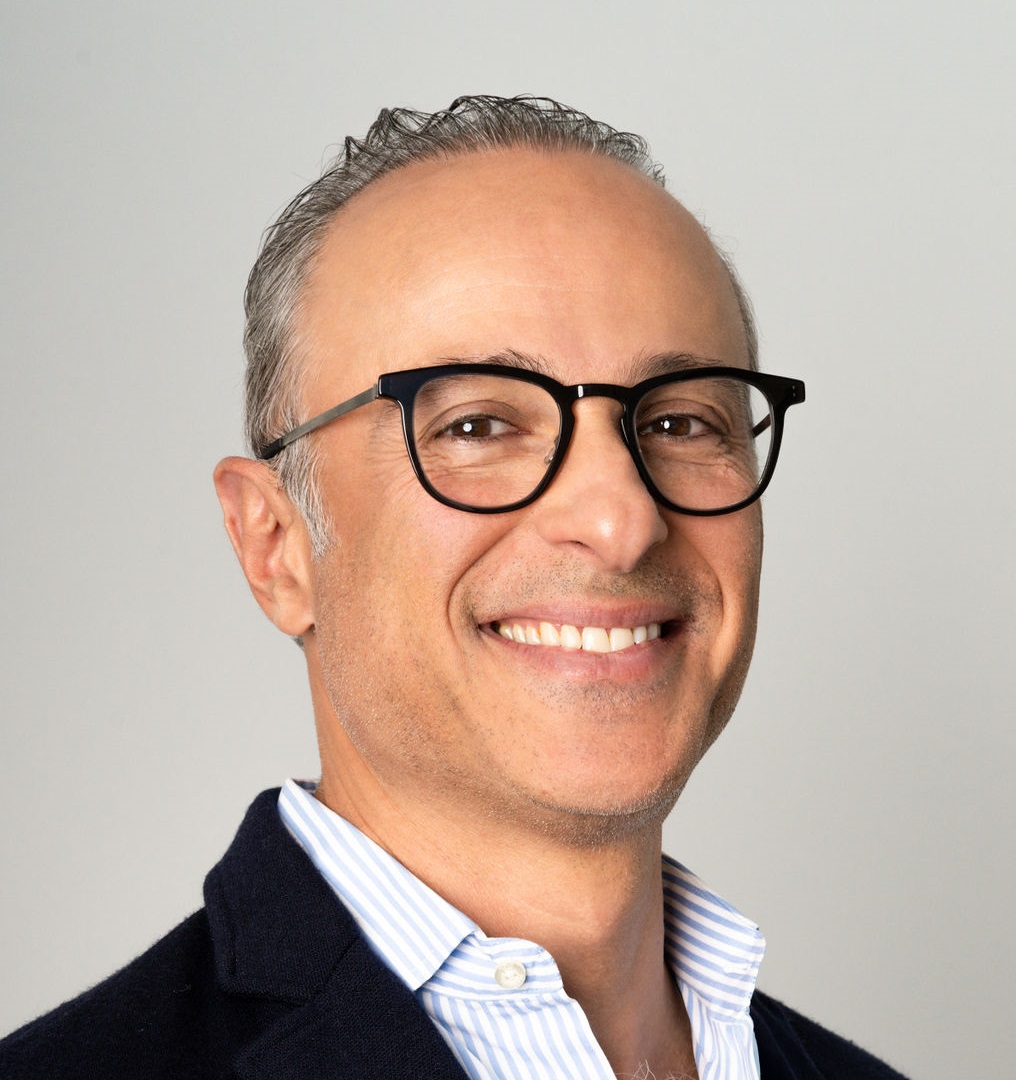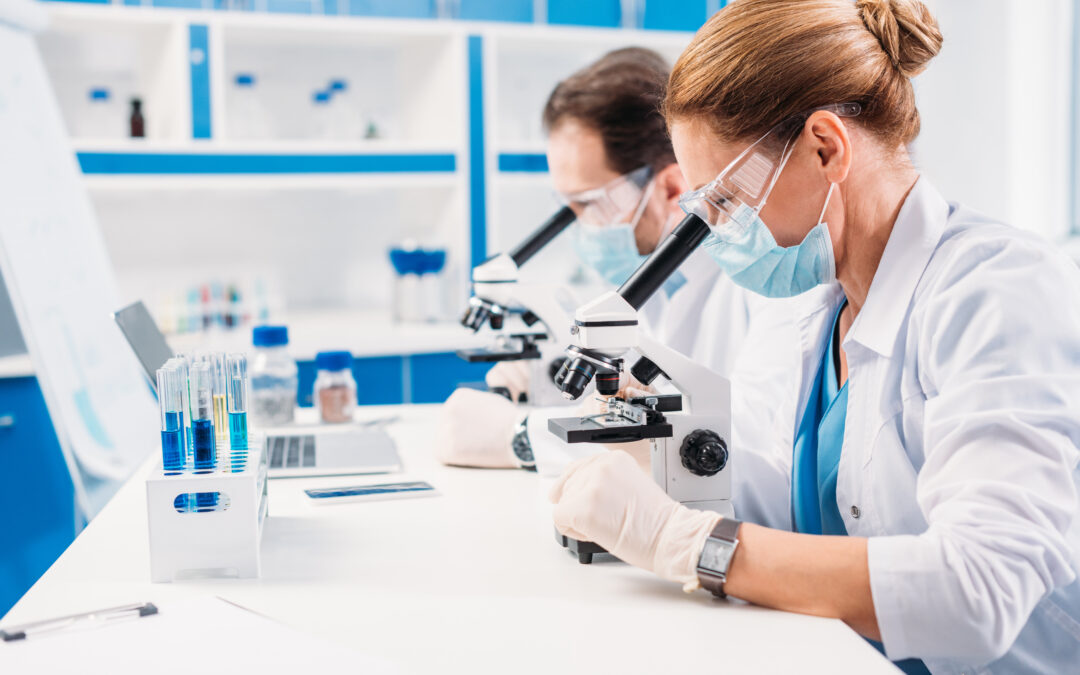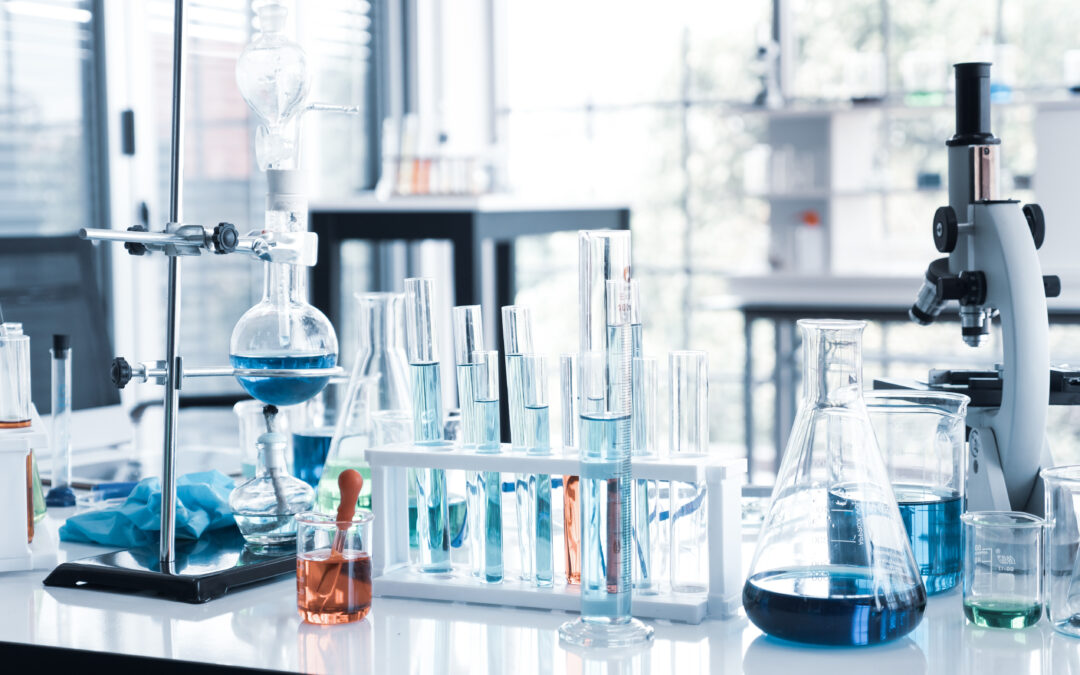
Opening an in-house clinical laboratory can transform the way that Wound Centers, Dermatology practices and Podiatrists deliver care. With rapid advances in molecular testing for wound pathogens, practices can now offer precise, same-day diagnostics that improve patient outcomes and streamline treatment decisions. The challenge is learning all the necessary steps to start a clinical lab while also running your clinic. With Cadence Lab Services, you don’t have to reinvent the wheel. We’ll deliver a turn-key lab to your practice and guide you each step of the way, beginning with this guide.
Why In-House Molecular Testing Matters
Traditional culture-based testing can take days to identify pathogens and determine antimicrobial resistance. Molecular PCR-based solutions have emerged as a superior alternative that provide rapid and precise identification of pathogens, allowing for targeted therapy and improved patient care. For wound centers, dermatologists, and podiatrists, this means:
- Faster diagnosis and treatment of infections
- Improved antibiotic stewardship
- Better patient satisfaction and outcomes
- Increased revenue to your practice
How Starting an In-house Lab can Improve Your Practice
Bringing laboratory testing in-house offers significant advantages for wound centers, dermatology practices, and podiatrists. By establishing your own clinical lab, you gain direct control over the diagnostic process, resulting in faster turnaround times and more accurate results. This means you can diagnose infections, monitor chronic conditions, and adjust treatment plans in real-time—often within the same patient visit.
An in-house lab also enhances patient satisfaction. When patients receive quicker answers and more personalized care, their trust in your practice grows. Additionally, having direct access to molecular testing allows you to identify pathogens and antibiotic resistance with unmatched precision, supporting better clinical decisions and improved outcomes.
Financially, starting an in-house lab can open new revenue streams for your practice. Instead of outsourcing tests, you can capture reimbursement for laboratory services, improve operational efficiency, and reduce overall costs. Ultimately, an in-house clinical lab empowers your team to deliver higher-quality care, strengthen patient relationships, and boost your practice’s bottom line.
Let’s break down the process into 5 phases using a few real-life examples of tests you might already be ordering.
Phase 1: Comprehensive Consulting
The journey to a successful in-house clinical lab begins with a comprehensive consulting phase. At this stage, expert guidance is crucial to ensure your project is both compliant and tailored to the unique needs of your wound center, dermatology, or podiatry practice. We’ll answer the initial questions about credentialing, lab planning, and timelines from start to finish.
Assess Your Practice’s Needs
Begin by identifying the most common infections and diagnostic needs in your specialty. For example:
- Wound Centers: Chronic wounds are prone to polymicrobial infections. Rapid detection of bacteria and fungi is essential for effective management.
- Dermatologists: Skin and soft tissue infections require accurate identification to differentiate between bacterial, fungal, and viral causes.
- Podiatrists: Foot ulcers and nail infections often involve hard-to-treat pathogens that benefit from precise identification.
By assessing the tests you’re already ordering, you can begin to see how patient care and reimbursements can be improved. The consulting process starts with a thorough assessment of your patient volume, testing needs, and clinical objectives. Our consultants will help you determine the most valuable test menu for your specialty, ensuring your lab aligns with your practice’s workflow and balance sheets.
Creating a Roadmap for Success
Goal setting helps us to develop a detailed project timeline outlining key milestones—from site preparation and equipment installation to regulatory inspections and go-live. This roadmap keeps your project on track and ensures a smooth transition to in-house testing.
With Cadence as your consulting partner, the initial phase of starting your lab becomes a clear, manageable process—setting the stage for clinical and operational success. This ensures you the lab start-up process won’t take time away from seeing your patients.
Choosing Which Testing Services to Bring In-House
Molecular testing, such as PCR-based assays, can detect a broad range of pathogens—including bacteria, fungi, and antimicrobial resistance markers—in a single test. This technology, similar to the molecular testing services offered by PathMD Labs, delivers results within 24 hours, enabling swift clinical decisions.
Key benefits include:
- Comprehensive Pathogen Panels: Identify multiple organisms in one test.
- Antimicrobial Resistance Detection: Guide therapy with real-time resistance data.
- Rapid Turnaround: Results typically available within one business day.
Molecular Testing Labs Typically Ordered
Here’s a sample of the tests typically ordered by dermatologists, podiatrists, and wound specialists along with the average reimbursement per-test.
| Test Name | Typical Use Case | Avg. Reimbursement (ROI) per Test* |
| Wound Pathogen Panel (PCR) | Detects bacterial/fungal pathogens in wounds | $350 – $600 |
| Antimicrobial Resistance Panel (PCR) | Identifies resistance genes for targeted therapy | $250 – $500 |
| Skin & Soft Tissue Infection Panel (PCR) | Diagnoses skin/soft tissue infections | $350 – $600 |
| Nail Fungus (Onychomycosis) PCR Panel | Detects fungal pathogens in nail infections | $200 – $400 |
| Herpes Simplex Virus (HSV) PCR | Identifies HSV in skin lesions | $150 – $300 |
| Human Papillomavirus (HPV) PCR | Identifies HPV in skin or mucosal lesions | $150 – $300 |
| Diabetic Foot Ulcer Pathogen Panel (PCR) | Detects pathogens in diabetic foot ulcers | $350 – $600 |
| MRSA/MSSA PCR | Detects methicillin-resistant/sensitive Staph | $120 – $250 |
Pathology Tests Typically Ordered
| Test Name | Typical Use Case | Avg. Reimbursement (ROI) per Test* |
| Tissue Biopsy (Histopathology) | Diagnoses malignancy, infection, or inflammation | $200 – $500 |
| Skin Lesion Excision Biopsy | Evaluates nevi, cysts, or suspicious lesions | $200 – $500 |
| Nail Clipping Pathology | Diagnoses fungal or other nail disorders | $100 – $250 |
| Punch Biopsy Pathology | Diagnoses skin rashes, tumors, or ulcers | $150 – $350 |
| Wound Debridement Pathology | Examines tissue from debridement procedures | $150 – $350 |
| Direct Immunofluorescence (DIF) | Diagnoses autoimmune blistering skin diseases | $250 – $450 |
| Gram Stain/Acid-Fast Stain | Identifies bacteria or mycobacteria in tissue | $30 – $60 |
| KOH Prep | Identifies fungal elements in skin/nail samples | $20 – $40 |
ROI values are estimates based on average insurance and Medicare reimbursement rates for in-house clinical labs. Actual reimbursement may vary based on payer contracts, coding, and local market factors.
Cadence Lab Services offers all our clients a free consultation to provide an overview of the process of starting your own lab and answer any questions you might have. Request a consultation today.
Phase 2: Financial Analysis
With Cadence Lab Services, you don’t have to guess how much it will cost to start a lab and how much you’ll receive in new revenue. We offer a free 2 month ride-along where we run the actual numbers of your practice through our billing models. Next, we’ll set up another free consultation to analyze the numbers with you to show you the real-time benefits and feasibility of starting your own lab.
Want to learn more about maximizing your ROI by bringing these tests in-house? We can run the numbers for your practice or center for 2 months to show you the actual ROI’s.
Contact Cadence Lab Services for a free consultation and personalized analysis or your practice.
Phase 3: Lab Set-up and Regulatory Compliance
Setting up a clinical lab involves obtaining the proper licensure and accreditation (such as CLIA, COLA, and CAP). Credentialing is one of the more time-intensive segments of starting a lab, which is why we take the guesswork out of getting your lab accredited. Our experts are on a first-name basis with regulators and we guarantee your lab will meet all regulations, including:
- Facility and equipment standards
- Personnel qualifications
- Quality control and assurance procedures
- Documentation and reporting protocols
In addition to ensuring that your lab meets OSHA, HIPAA, and local health department standards, we will process the following for you:
CLIA (Clinical Laboratory Improvement Amendments)
CLIA certification is mandatory for all clinical laboratories that test human specimens in the United States. Cadence Lab Services will guide you through the entire CLIA application process, from determining the appropriate level of complexity for your testing menu (waived, moderate, or high complexity) to preparing your facility for inspection. We ensure your lab meets all federal requirements for quality, personnel, and operational standards, so you can focus on patient care with confidence.
COLA (Commission on Office Laboratory Accreditation)
If you are seeking a user-friendly accreditation process tailored for physician office labs, COLA is an excellent choice. Cadence Lab Services will handle your COLA application, coordinate all necessary documentation, and prepare your team for the on-site survey. Our consultants provide hands-on support to ensure your lab’s policies, procedures, and quality systems are fully compliant with COLA standards, helping you achieve and maintain accreditation with ease.
CAP (College of American Pathologists)
For practices handling large amounts of pathology specimens, aiming for the gold standard in laboratory quality comes with the CAP accreditation and demonstrates your commitment to the highest level of excellence. The CAP process is not required in the same way as CLIA and COLA, but it demonstrates that your lab upholds the highest standards. We can assist with this detailed and rigorous process for dermatology, podiatry, and wound care labs for CAP inspections. We’ll assist you with the application, gap analysis, checklist preparation, staff training, and ongoing compliance, ensuring your lab meets CAP’s stringent requirements for accuracy, safety, and quality.
Let Cadence Lab Services be your trusted partner in navigating the complexities of lab accreditation. We take care of the paperwork and regulatory details, so you can deliver top-tier diagnostics and care to your patients. Book a Consultation Today.
Phase 4: Design Your Lab
A thoughtfully designed clinical lab is the backbone of efficient, accurate, and safe diagnostic testing. At Cadence Lab Services, we guide you through every aspect of lab design, equipment procurement, calibration, and workflow establishment to ensure your new lab operates seamlessly from day one.
Finalizing Your Lab Layout & Design
We begin by assessing your available space and projected testing volume to create a functional layout tailored to your specialty. Our designs prioritize logical workflow, safety, and regulatory compliance, with clearly defined zones for sample collection, specimen processing, storage, and administrative tasks.
Procuring and Calibrating Equipment
Selecting the right equipment is crucial for delivering reliable results and maximizing your return on investment. Our consultants recommend validated molecular testing platforms, centrifuges, refrigerators, biosafety cabinets, and any specialty instruments based on your test menu. We manage vendor negotiations, coordinate delivery and installation, and oversee initial calibration and validation to ensure every device meets manufacturer and regulatory standards.
Establishing Efficient Workflows
A well-structured workflow minimizes errors and maximizes productivity. We help you establish:
- Sample Collection Protocols: Training your staff on best practices for collecting and labeling wound, skin, and nail specimens to maintain specimen integrity and reduce contamination.
- Specimen Processing Procedures: Standardizing steps for receiving, preparing, and analyzing samples using your new equipment, with clear documentation at every stage.
- Data Management Systems* Implementing a Laboratory Information System (LIS) that securely tracks samples, manages results, and integrates with your existing EMR for seamless ordering and reporting.
Ongoing Support and Optimization
After your lab is up and running, Cadence Lab Services provides continuous support to optimize your workflow, troubleshoot equipment, and update protocols as your testing needs evolve. Reach out today.
Phase 5: Staffing Your Lab for Success
Building a high-performing in-house clinical lab requires more than just the right equipment and workflow—it depends on assembling and supporting a skilled laboratory team.
Cadence Lab Services guides you through every phase of staffing, from recruiting qualified professionals to ensuring ongoing compliance and excellence. Staffing a successful lab all begins with selecting the right lab manager. We partner with Telelsis Lab Staffing to ensure that every employee in your lab will meet regulations and provide the highest quality testing.
Recruiting the Right Talent
The first step is identifying the roles your lab needs, such as a Lab Director, Medical Technologists, Lab Technicians, and support staff. Our experienced recruiters source candidates who meet both regulatory requirements and the specific needs of your wound center, dermatology, or podiatry practice. We help you vet credentials, verify licensure, and select individuals with the right technical skills and cultural fit for your team.
Onboarding New Staff
A smooth onboarding process sets the tone for a productive and compliant laboratory. Cadence Lab Services assists with background checks, credentialing, and documentation, ensuring all staff are properly registered and oriented to your facility’s unique protocols. We provide onboarding checklists and compliance documentation to keep you organized and audit-ready from day one.
Training and Competency Assessment
Proper training is essential for quality results and regulatory compliance. We deliver customized training programs—including hands-on instruction for molecular testing, specimen handling, quality control procedures, and use of your Laboratory Information System (LIS). Our ongoing competency assessments ensure every team member remains proficient and up-to-date on best practices and new technologies.
Preparing for and Passing Audits
Regulatory and accreditation audits are a routine part of laboratory operations. Cadence Lab Services prepares your staff by conducting mock inspections and audit drills, reviewing documentation, and ensuring adherence to all SOPs and quality assurance protocols. We provide guidance on responding to auditors, maintaining records, and implementing corrective actions if needed—so you can approach audits with confidence.
Ongoing Support and Continuing Education
As your lab grows, we offer continuing education opportunities and support for staff development. This helps your team stay current with evolving regulations, new testing methods, and advances in laboratory science.
With Cadence Lab Services as your partner, you can be confident that your lab is staffed by knowledgeable, compliant, and highly capable professionals—setting the stage for long-term success and superior patient care. Contact us today to learn more about starting up your own specialty clinical lab.
Need more information before reaching out? Read Our In-Depth Guide on How To Start A Lab with Cadence Lab Services.
Frequently Asked Questions
What are the main benefits of having an in-house clinical lab for my practice?
An in-house lab allows for faster diagnostic turnaround, improved patient care, greater control over testing quality, and the potential for increased revenue through reimbursement for laboratory services.
What types of tests should I offer in my specialty clinical lab?
Wound centers, dermatologists, and podiatrists commonly offer molecular tests (such as PCR panels for wound pathogens, skin and nail infections, and antimicrobial resistance) as well as traditional pathology tests (like tissue biopsies, punch biopsies, and direct immunofluorescence).
How do I determine which molecular tests are most relevant for my practice?
Start by assessing the most frequent infections and diagnostic needs of your patient population. Consulting with a laboratory expert can help you select the most clinically and financially valuable tests for your workflow.
What are the regulatory requirements for opening a clinical lab?
You must obtain CLIA certification and, depending on your state, additional licensure or accreditation (such as CAP or COLA). You’ll also need to comply with federal and state regulations regarding lab operations, quality assurance, and personnel qualifications.
How much space and equipment do I need?
Lab size and equipment will depend on your test menu and patient volume. Most specialty practices can start with a compact molecular testing platform and basic histopathology equipment. An experienced consultant can help you design an efficient layout.
What is the typical investment and ROI for starting an in-house lab?
Startup costs vary, but many practices see a positive ROI within the first year due to improved reimbursement and operational efficiencies. See our charts above for potential reimbursement rates for common tests.
How do I ensure quality and compliance in my new lab?
Implement robust quality control and assurance procedures, provide ongoing staff training, and consider partnering with a lab management service for ongoing compliance support.
Can I integrate lab results with my existing EMR?
Yes, most modern laboratory information systems (LIS) can interface with electronic medical records, providing seamless ordering and results reporting.
Who can help me plan and launch my in-house clinical lab?
Cadence Lab Services specializes in helping wound centers, dermatologists, and podiatrists plan, launch, and manage successful in-house clinical labs. Contact us to get started.
Find Out How Much Your Current Lab Work is Worth
Cadence Lab Services will help you calculate your current labwork for 2 months to show you the potential margins on bringing a lab-house. Our turnkey solutions take all the guess work out of your investment and empower you to provide the highest quality and fastest care to your patients.
Read Next

Dr. Kia Michel
Urologist and Lab Management Expert
Kia Michel MD is co-founder of Cadence Lab Services. A renowned urologist, he opened his own in-house lab when he realized that he could improve patient outcomes in his urology practice, Comprehensive Urology in Beverly Hills, by having the power of fast test results. He shares his knowledge of the lab industry to empower other clinicians to take control of their own lab work.

How Much Does it Cost to Run a Laboratory?
Establishing a medical laboratory involves a range of important considerations, each playing a critical role in building a strong, compliant, and reliable operation. From selecting an appropriate...

Start Your Own Lab with Cadence Lab Services: Step by Step
How do you start your own lab to improve your ability to get fast results for your patients? Medical laboratories play a critical role within healthcare, providing analytical and diagnostic services...

Clinical Laboratory Profitability: Top Ways to Increase Your Lab’s Revenue in 2025
Clinical laboratories are facing increased demands each year, from boosting test volumes and reducing turnaround times to controlling costs, all while managing with fewer resources and a shrinking...
